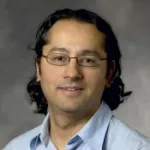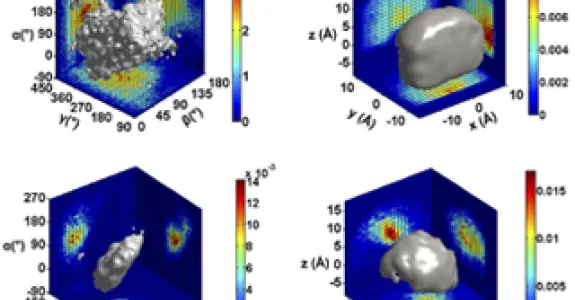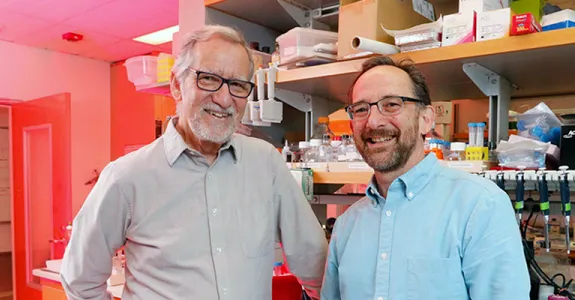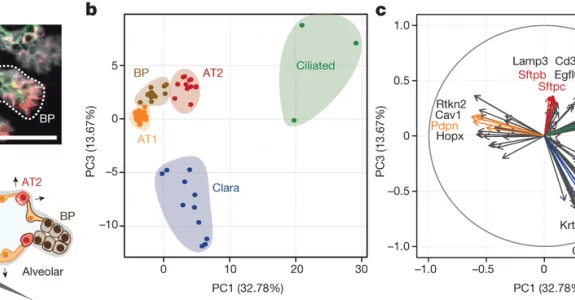
Dr. Tushar Desai specializes clinically in the treatment of general pulmonary and Interstitial Lung Diseases like Idiopathic Pulmonary Fibrosis (IPF). He has practiced pulmonary medicine since 2002.
Dr. Desai conducts basic and translational research on lung stem cells that repair and regenerate the lung after injury, and their role in diseases like IPF, Chronic Obstructive Pulmonary Disease (COPD), and lung adenocarcinoma. His lab also studies the molecular signals that regulate lung stem cell activity, and how the signals can be manipulated to restore their activity. He participates in research involving gene correction of CFTR in lung stem cells from patients with Cystic fibrosis followed by autologous stem cell transplantation to provide lifelong restoration of physiological activity.
Dr. Desai's lab is focused on understanding the causes of and working towards specific molecular and cell-based treatments for lung diseases like cancer, pulmonary fibrosis, COPD. The lab focuses their attention on lung stem cells and the molecular signals that regulate their activity to repair and regenerate lung tissue after injury. These same stem cells can become dysfunctional, generating cancer if they become overactive, and resulting in respiratory failure if they lose their potency. They are focused on Wnt signaling because this appears to be a key signal that confers stem cell potency in both mouse and human lung, and is overactive in diseases like lung adenocarcinoma and Idiopathic Pulmonary Fibrosis (IPF). The Desai lab also studies the role of TERT in lung stem cell biology and repair of acute lung injury, which is a culprit gene mutation in IPF. Their experimental approaches involve mouse genetics, single cell genomics, organoid culture, lung slice culture, and we perform histological analysis of lung tissue using advanced fluorescence microscopy technologies. A portion of the lab is also involved in the invention of new technologies to facilitate highly multiplexed staining of protein (immunostaining) and RNA (in situ hybridization) of human tissues.
Lung stem cells can also be exploited to treat monogenic diseases, by using CRISPR to correct the genetic mutation then transplanting them back into the patient. This strategy of ex vivo gene correction in stem cells followed by autologous stem cell transplantation is already being trialed in blood disorders like Sickle cell anemia. The Desai lab is part of a Stanford group that is using CRISPR to correct CFTR mutations in airway stem cells and working towards developing a protocol for safe and effective autologous transplantation into the sinuses of Cystic fibrosis patients. They hope to advance this cell-based therapeutic approach of transplanting stem cells into the airways and gas exchange region of the lungs to treat diseases resulting from loss of stem cell potency.



